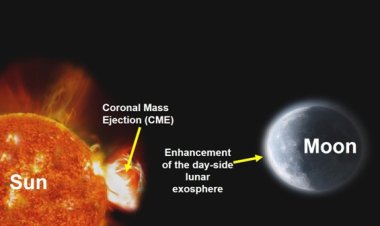Fusion Energy: Chasing the Sun's Power for a Brighter Future
For decades, scientists have pursued the holy grail of clean energy: replicating the process that powers the sun - nuclear fusion.

This dream is inching closer to reality, with the potential to revolutionize the global energy landscape.
The Promise of Fusion:
Nuclear fusion involves the merging of atomic nuclei, releasing enormous amounts of energy. Unlike nuclear fission, which powers today's nuclear plants, fusion doesn't produce long-lived radioactive waste. It utilizes readily available isotopes like hydrogen, making it a virtually limitless and environmentally friendly energy source.
The Benefits of Fusion Energy:
- Clean and Sustainable: Fusion produces minimal waste compared to fossil fuels or fission reactors.
- Abundant Fuel Source: The fuel for fusion, hydrogen isotopes, is readily available in seawater.
- High Energy Output: Fusion reactions can create immense amounts of energy from a small amount of fuel.
- Reduced Geopolitical Tensions: Widely available fuel sources could lessen reliance on specific countries for energy resources.
Challenges on the Path to Fusion Power:
Despite the immense potential, significant hurdles remain before fusion becomes a viable energy source:
- Extreme Conditions: Fusion requires replicating the sun's core, with temperatures reaching millions of degrees Celsius. Creating and sustaining these conditions for a commercially viable reactor is a major engineering challenge.
- Plasma Confinement: Confining the superheated, charged gas (plasma) necessary for fusion requires powerful magnetic fields. Maintaining stability within this extreme environment is a critical hurdle.
- Sustained Fusion Reaction: Scientists have achieved brief bursts of fusion, but maintaining a continuous, controlled reaction for energy production remains elusive.
The Race to Fusion Ignition:
The scientific community is making significant strides. Recent breakthroughs in tokamak reactors, doughnut-shaped machines that confine plasma, offer renewed hope. Several countries and private companies are heavily invested in fusion research, with the ultimate goal of achieving "ignition," a self-sustaining fusion reaction that generates more energy than it consumes.
The Road Ahead:
Fusion energy is not a short-term solution, with estimates suggesting commercial viability may be decades away. However, continued research and international collaboration are crucial to unlock this clean and limitless energy source.
The Takeaway:
While challenges remain, the potential of fusion energy is undeniable. As research progresses and technology advances, the day when we harness the power of the sun for our energy needs may not be as distant as once thought. Fusion holds the promise of a cleaner, more sustainable future for generations to come.






















